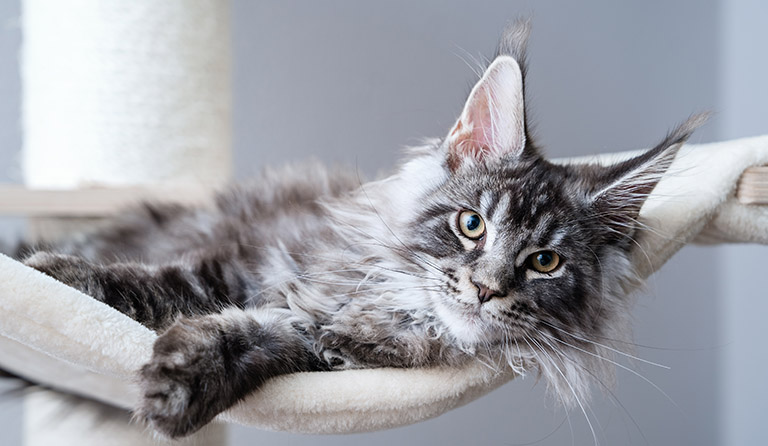Caring for a senior cat comes with its own unique set of challenges and rewards. As your feline friend ages, their needs change, requiring adjustments to their care routine to ensure their comfort and well-being. From recognizing the signs of aging and addressing common health issues to adapting their environment and maintaining their physical and mental health, you can provide the best care for your senior cat. This blog offers important tips and guidance on how to navigate this important stage of your cat’s life, helping them thrive in their golden years.
Signs of Aging in Cats
As cats age, they often show subtle signs of getting older. You might notice changes in their behavior, such as shifts in temperament or a decline in activity levels. Physically, they may start to develop graying fur, lose weight or experience skin issues. Health challenges like arthritis, dental problems or hearing and vision loss can also become more common. Mentally, they may struggle with cognitive decline. These changes can happen gradually or more suddenly, but whenever they occur, it’s important to recognize them and adjust your care for your senior cat to ensure your feline friend remains comfortable and well-loved in their senior years.
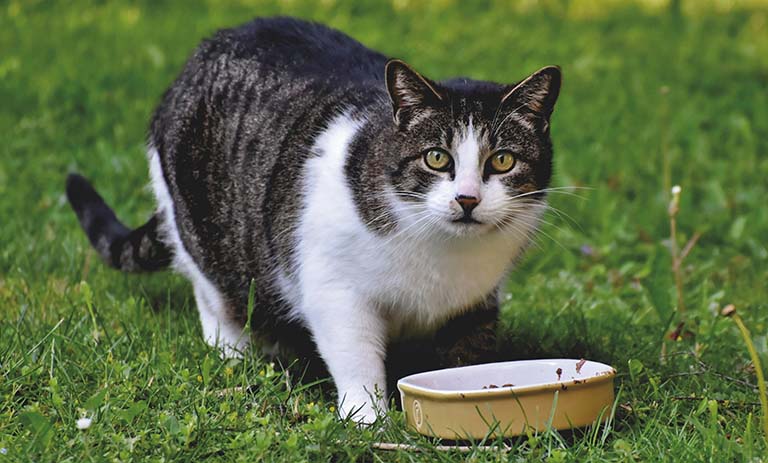
Monitoring Behavior and Health
Know the Common Signs of Disease
Recognizing the common signs of disease early on allows you to address your cat’s needs before their condition worsens. Be watchful for indicators such as:
- Sores that won’t heal
- Discharge or bleeding
- Drinking less or more water
- Decreased grooming and unkempt fur/coat
- Unusual lumps or growths
- Big change in behavior
- Decreased appetite
- Nausea, vomiting or constipation
- Daily pain or discomfort
- Changes in sleeping patterns
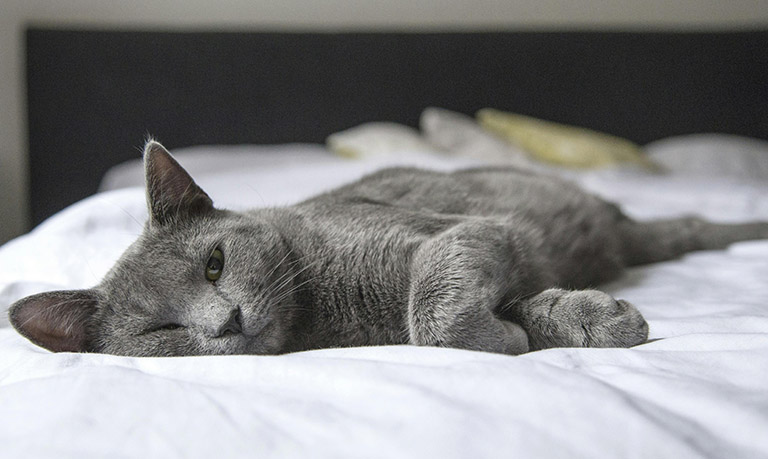
When to Seek Veterinary Attention
When you notice changes in your cat’s behavior, appetite or physical condition, it’s crucial to seek veterinary attention promptly. Cats are masters at hiding pain and discomfort, so even minor signs could indicate a serious underlying issue. Early intervention can prevent more severe health problems and improve your cat’s quality of life.
Common Health Issues in Senior Cats
- Kidney Disease: A common issue in older cats, leading to weight loss, increased thirst and decreased appetite.
- Diabetes: Characterized by excessive thirst and urination, weight loss and lethargy.
- Hyperthyroidism: Often results in weight loss despite an increased appetite, along with hyperactivity and possible aggression.
- Arthritis: Causes stiffness, difficulty jumping and decreased mobility, often leading to discomfort.
- Dental Problems: Dental disease is prevalent in older cats, leading to pain, difficulty eating and bad breath.
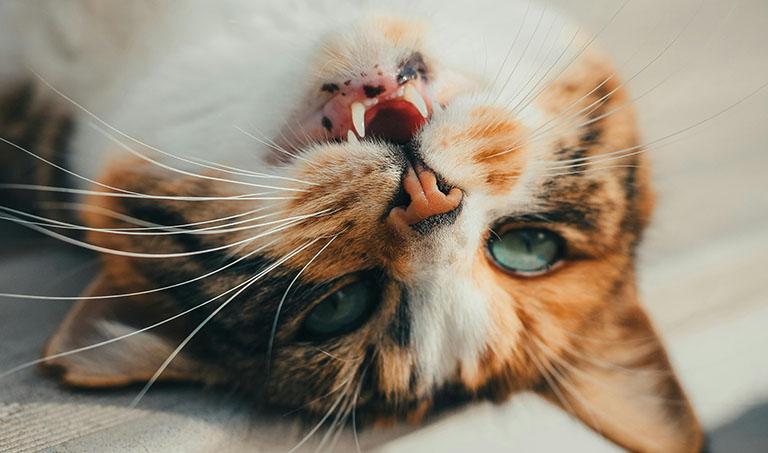
Senior Cat Care Tips
Regular Veterinary Care
Senior cats should visit the vet at least twice a year. These check-ups are crucial for catching health issues early. Routine tests and screenings can detect conditions like kidney disease, diabetes, and thyroid problems before they become serious.
Older cats still need core vaccinations to protect against common diseases. Parasite control is also essential, as senior cats can be more susceptible to infestations. Regular prevention helps keep your cat healthy and comfortable.
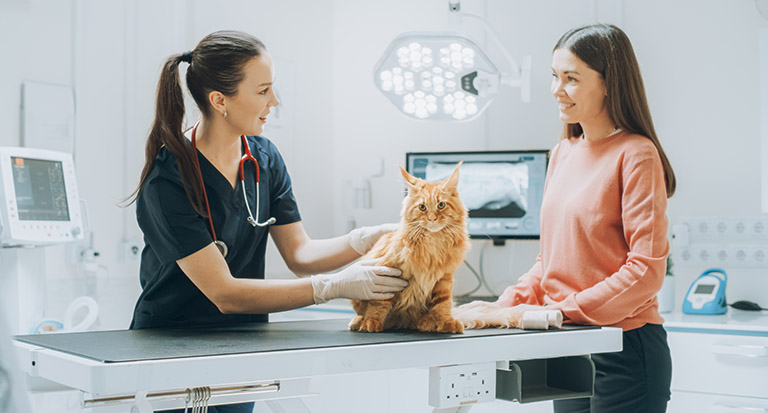
Nutrition and Diet
There are no universal nutritional requirements for senior cats because the aging process varies widely among individuals. This makes it challenging to define a single set of dietary needs. However, three key principles should guide their nutrition:
- Control calorie intake to prevent excess weight gain.
- Ensure proper hydration.
- Provide a balanced diet with appropriate levels of protein, sodium, fat and phosphorus.
Senior cats are at risk of becoming underweight due to a declining sense of taste and smell. To address this, consider switching to softer foods with a higher meat content, as they tend to have a stronger scent and can be more appealing to older cats.
Hydration: Keeping your cat hydrated can be challenging, especially as they age, since older cats often become less sensitive to thirst. To encourage adequate water intake, place multiple bowls of clean, fresh water around the house and consider using a cat water fountain, as cats are naturally drawn to running water. Wet food is another excellent option, as it provides extra moisture to help maintain proper hydration levels.
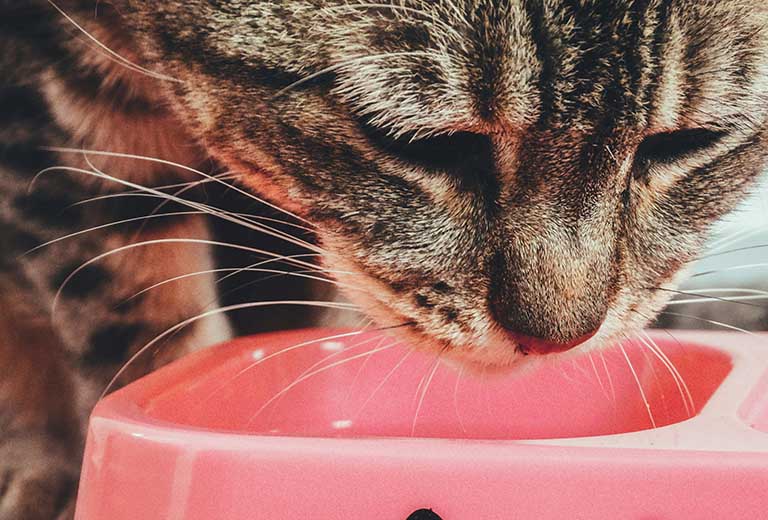
Grooming and Hygiene
Contrary to popular belief, cats don’t actually groom themselves as thoroughly as we might think. Regular grooming is an essential part of cat care at any age, and it becomes even more important as they grow older. Establishing a grooming routine helps your senior cat feel more comfortable and provides several physical benefits. Regular brushing reduces shedding and prevents matting, while also allowing you to monitor their coat and skin for any developing issues. Additionally, periodic baths keep them clean and free from excess grease.
Dental hygiene is crucial for senior cats, as they are prone to dental issues like tartar buildup, gingivitis and tooth decay. To maintain dental health, regularly brush your cat’s teeth with a cat-specific toothpaste, provide dental treats or toys, and schedule regular veterinary dental check-ups.
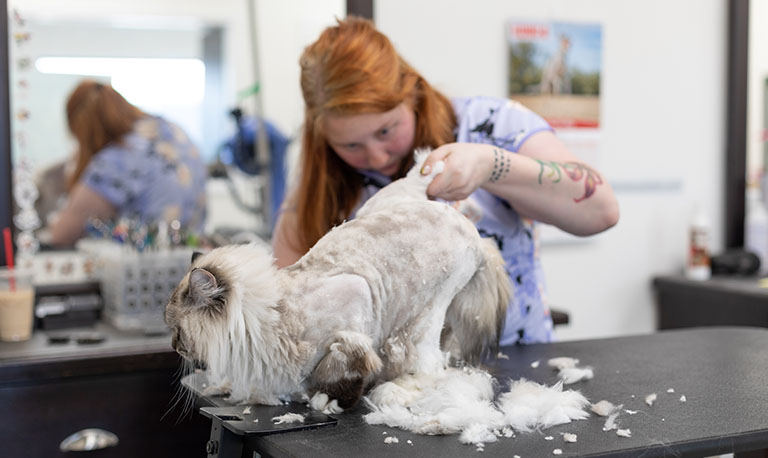
Comfort and Environment
Ensuring that your aging cat has easy access to their essentials is important for their comfort. As cats age, they may struggle to reach their food, water and litter boxes. To make their life easier, place these items in locations that are convenient for them to access. Consider using elevated bowls to reduce strain on their joints and low-entry litter boxes to make using the box simpler.
Additionally, provide ramps or stairs to help them reach their favorite spots, and offer soft, warm bedding in quiet, cozy areas. These adjustments will help create a comfortable and accessible environment, supporting your senior cat’s well-being in their later years.
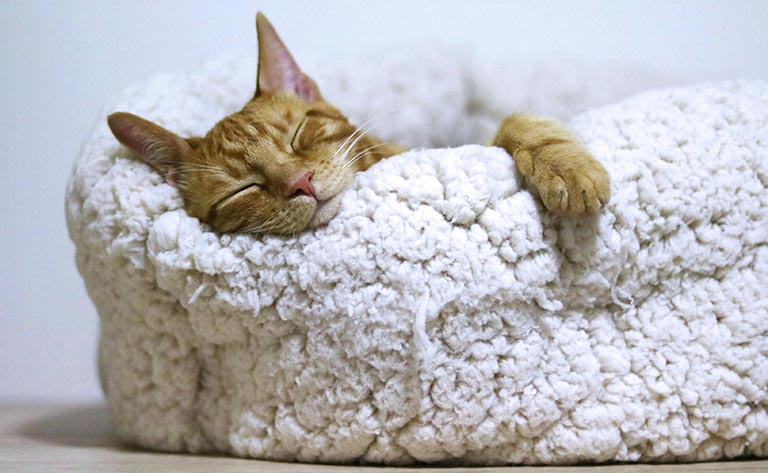
Mental and Physical Stimulation
Incorporate gentle exercise routines, such as short play sessions with soft toys or interactive wands. Safe playtime activities, like lightweight balls or feathers, encourage movement without risking injury. These activities help prevent obesity and support joint health.
Engaging your cat’s mind is just as important as physical activity. Use interactive toys and puzzle feeders to challenge their intellect and keep them entertained. Regular social interaction, whether through petting or gentle play, also helps keep their mind sharp and provides emotional enrichment.
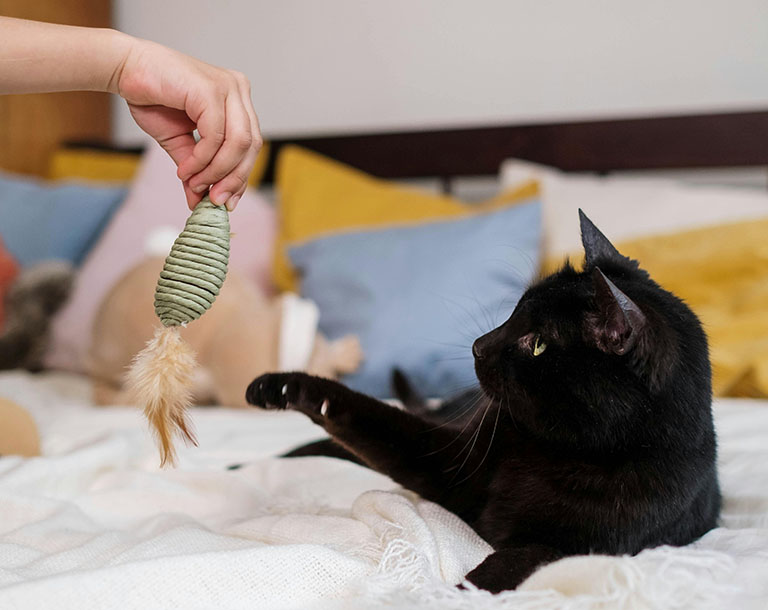
Your Cat’s Golden Years
Caring for a senior cat involves thoughtful adjustments and attentive care to keep them happy and healthy. By understanding the signs of aging, maintaining regular veterinary visits, adjusting their diet and ensuring a comfortable living environment, you can significantly improve your cat’s quality of life. Remember, the goal is to provide a loving and supportive environment that addresses their evolving needs. With these strategies, you can help your senior feline companion enjoy their later years with dignity and comfort, reinforcing the special bond you share.


